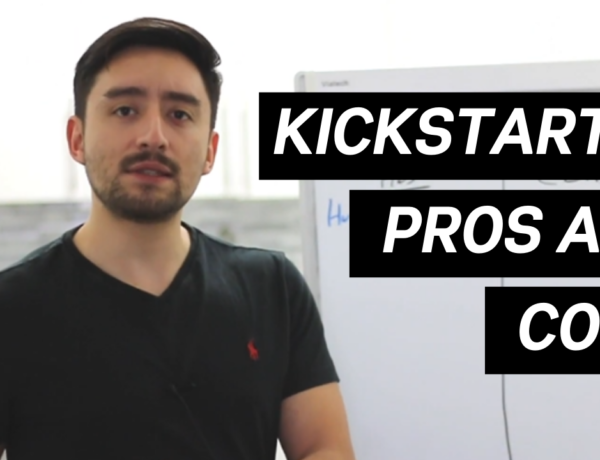I’ve put together an analysis of some of the equity crowdfunding statistics when it comes to regulation crowdfunding. I share some of that with you in today’s video.
You’ll discover more about who’s using Reg CF, the types of companies that are raising funds, and how you can use Title III of the Jobs Act to also raise funds with an equity crowdfunding campaign.
This is a super in-depth comprehensive video. It’s for those entrepreneurs that are serious about getting funding for their business and want to know what equity crowdfunding is like from the regulations to the obligations on your part.
Think you’ll like this vid a lot. It goes over everything that you need for getting started with equity crowdfunding.
Did you like the training video?
Would love to hear from you in the comments section. If you did like it, you can also give me a thumbs up on YouTube so that other entrepreneurs know it was good content.
There’s a lot of strategy that goes into launching an effective crowdfunding campaign. You can get weekly bite-sized tips from me by subscribing to this YouTube channel.
Every single week, I work to bring you great educational videos that will help you as you go out there and raise money from the crowd.
I would be lying if I didn’t tell you something though…
Equity crowdfunding is pretty confusing (at first)
 I personally think that the #1 thing holding this new industry back is that it’s pretty confusing. Especially if this is your first equity crowdfunding campaign. Am I right?
I personally think that the #1 thing holding this new industry back is that it’s pretty confusing. Especially if this is your first equity crowdfunding campaign. Am I right?
For this reason, I decided to write a simple and easy-to-understand book that walks you through how equity crowdfunding works.
I’ll address all of the regulations, what you gotta do to get funding, and how to supercharge the process with key consultants, advisors, and tools.
This book is called Equity Crowdfunding Explained and it’s available a few places.
You can grab a physical copy or ebook on Amazon
You can get an Audio version on Audible
The first step towards launching an equity crowdfunding campaign is getting educated. You don’t have to use my book to do this. You can watch free content out there, like the video that I linked to in this article.
By learning a bit about how crowdfunding works, you’ll ensure a successful launch experience (rather than making some of the very common mistakes).
Along with education, you also have to figure out how much funding your company needs.
Every funding round is different
Only YOU can adequately assess how much money your company needs. What kind of funding round are you going after?
This key decision is going to influence which regulations you raise money under. Let me explain. Let’s say that you want to raise $20 million in capital. You can’t do that using Title III of the Jobs Act (also known as Regulation Crowdfunding). Why?
Because at the time of writing, the cap on Title III is $1 million in a 12 month period! You can’t legally raise more than this amount. You’d have to do a Reg A+ or Reg D raise instead.
Every funding round is different also because of the resources that you have to put towards the raise. Depending on how much you’re looking for and from which sources, you might need audited financials. You might have to invest money in buying the services of lawyers and accountants.
Other raises don’t require much money, especially if you’re raising less than $100,000 under regulation crowdfunding. You gotta know the particulars of your individual raise. Make sense?
Equity crowdfunding is growing… fast
I go through these statistics in my book, Equity Crowdfunding Explained, but basically, the industry is growing pretty fast. More and more companies are using these regulations to raise money. New platforms are launching. It’s an exciting time to be alive.
My video touches on these statistics, particularly when it comes to the initial types of startups that have used these regulations to expand. You can use this information when trying to decide whether or not your company is a good fit for equity crowdfunding.
It’s always best to be a part of a rising trend. It opens up a lot of opportunities that you might not have considered.
For example, there will be a spotlight on all of the majorly successful campaigns in this new sector, because is a genuine breakout story. Kickstarter has been around for a while, so a story on a project isn’t as novel. A story about an equity campaign is not only novel, but it also capitalizes on a new trend.
You can use the launch of your campaign as a media opportunity to raise your company’s profile, get more investors interested in you, and also connect with key partners that can help grow your user-base or your sales.
This is just the beginning. I hope you’ve enjoyed todays video and if you do pick up a copy of my book, take a sec to leave me a review.




